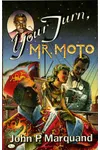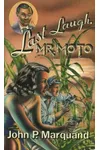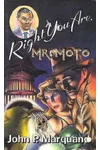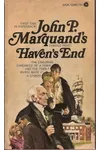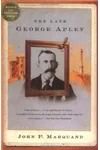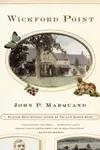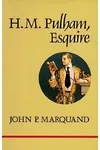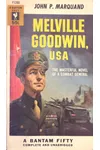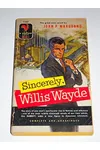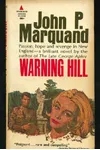Picture a storyteller who peeled back the polished veneer of America’s elite with a wry smile—meet John P. Marquand! Born in 1893, this Pulitzer Prize-winning author blended sharp satire with thrilling spy tales, capturing the quirks of upper-class New England and the pulse of mid-20th-century America. From his iconic The Late George Apley to the dashing Mr. Moto mysteries, Marquand’s stories still sparkle with wit and insight.
Marquand’s knack for exposing societal norms with a playful nudge made him a literary star. His works, steeped in class dynamics and human ambition, resonate with readers who love a good story with a side of social commentary. Let’s dive into the life and legacy of this American gem!
The Making of John P. Marquand
John Phillips Marquand was born on November 10, 1893, in Wilmington, Delaware, into a family with deep New England roots. His early years in Rye, New York, were comfortable until his father’s business collapsed in the 1907 crash, sending young John to live with aunts in Newburyport, Massachusetts. This shift from privilege to modesty shaped his keen eye for social hierarchies. At Harvard, where he studied on a scholarship, Marquand faced snubs from the elite but found his voice on the Harvard Lampoon. After graduating in 1915, he reported for the Boston Evening Transcript and served in World War I, experiences that fueled his storytelling.
John P. Marquand’s Unforgettable Stories
Marquand’s literary career took off with his Mr. Moto spy novels, starting with Your Turn, Mr. Moto in 1935. These fast-paced tales, serialized in the Saturday Evening Post, featured a cunning Japanese agent and inspired eight Hollywood films starring Peter Lorre. Yet, Marquand’s true genius shone in his satirical novels. The Late George Apley (1937), a Pulitzer Prize-winning mock biography, hilariously critiqued Boston’s Brahmin class, with readers mistaking it for a real memoir! Wickford Point (1939) and H.M. Pulham, Esquire (1941) continued his exploration of New England’s fading gentility, blending humor with poignant reflections on duty and conformity.
His later works, like Point of No Return (1949), dissected small-town life, while Women and Thomas Harrow (1958) offered a semi-autobiographical look at a playwright’s struggles. Marquand’s style—clear, witty, and subtly biting—drew comparisons to Sinclair Lewis and Edith Wharton, making his novels both accessible and profound.
Why John P. Marquand Matters
Marquand’s impact lies in his ability to hold a mirror to American society, exposing its contradictions with charm and precision. His satirical novels redefined the ‘novel of manners,’ influencing writers who tackled class and culture. The Mr. Moto series, meanwhile, brought escapist thrills to a global audience, cementing his versatility. His works, adapted for film and stage, reached millions, and his Pulitzer win elevated American satire’s prestige. Today, Marquand’s insights into ambition and societal pressure remain timeless, inviting readers to question the status quo with a grin.
- Born: November 10, 1893, Wilmington, Delaware
- Died: July 16, 1960, Newburyport, Massachusetts
- Key Works: The Late George Apley, Your Turn, Mr. Moto, H.M. Pulham, Esquire, Point of No Return
- Awards: Pulitzer Prize for Fiction (1938)
Ready to explore a world of wit and intrigue? Snag The Late George Apley or a Mr. Moto novel and dive into John P. Marquand’s brilliant blend of satire and suspense!
